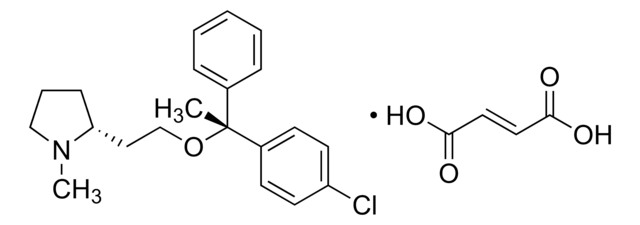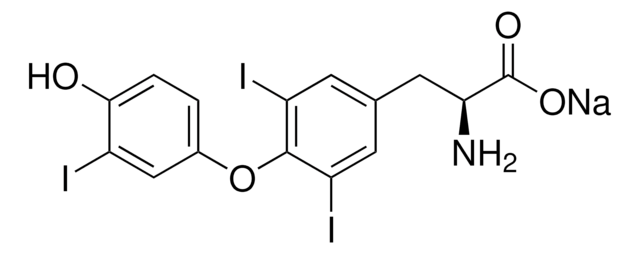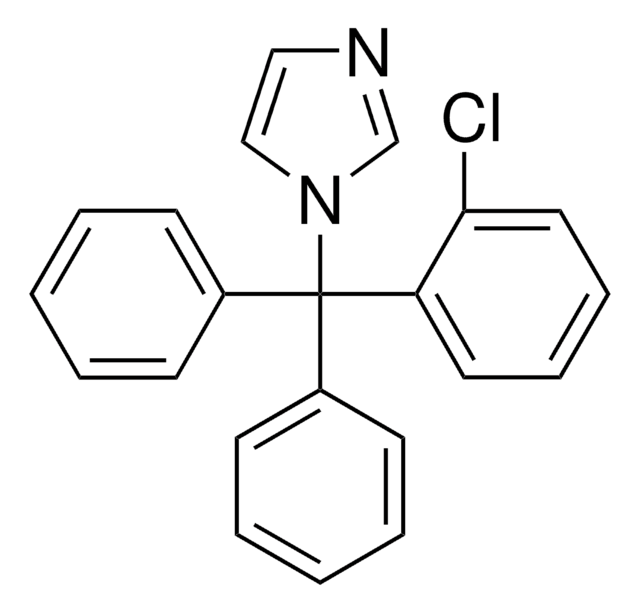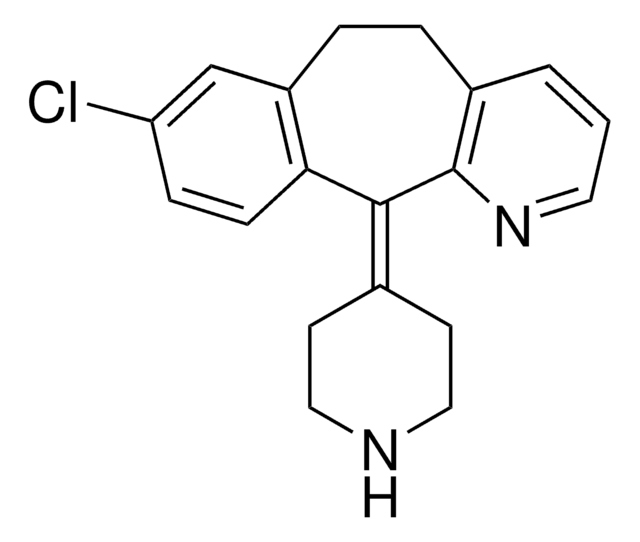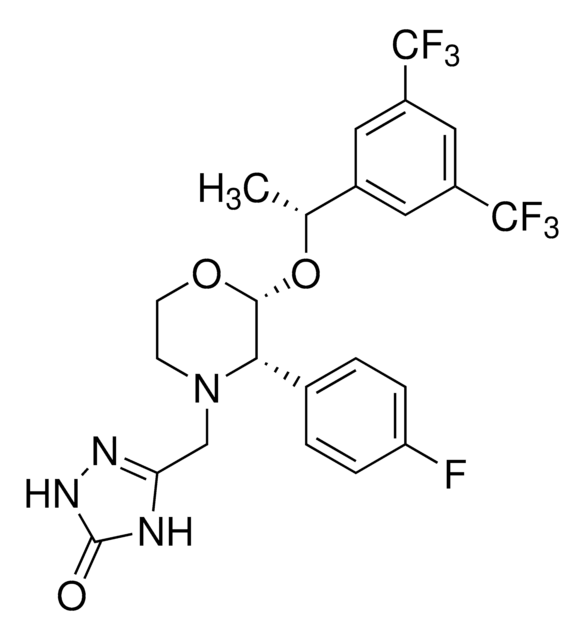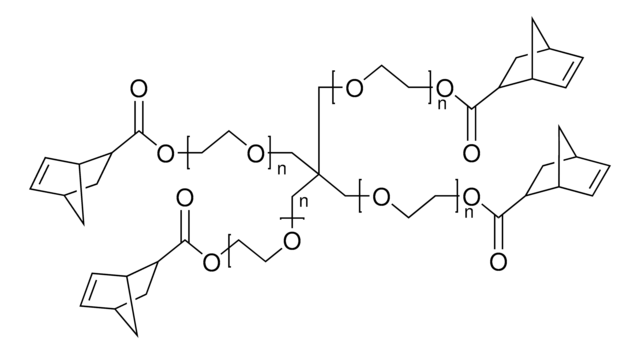SML0445
Clemastine fumarate salt
≥98% (HPLC)
Synonym(s):
(+)-2-[2-[(p-Chloro-α-methyl-α-phenylbenzyl)oxy]ethyl]-1-methylpyrrolidine fumarate salt, (2R)-2-[2-[(1R)-1-(4-Chlorophenyl)-1-phenylethoxy]ethyl]-1-methylpyrrolidine fumarate salt, 1-Methyl-2-[2-(α-methyl-p-chlorobenzhydryloxy)ethyl]pyrrolidine fumarate salt, 1-Methyl-2-[2-(methyl-p-chlorodiphenylmethyloxy)ethyl]pyrrolidine fumarate salt, Meclastine fumarate salt, Mecloprodine
About This Item
Recommended Products
Quality Level
Assay
≥98% (HPLC)
form
powder
optical activity
[α]/D +15 to +25°, c = 1 in methanol
storage condition
desiccated
color
white to beige
solubility
DMSO: 5 mg/mL (clear solution; warmed)
storage temp.
room temp
SMILES string
OC(=O)\C=C\C(O)=O.CN1CCC[C@@H]1CCO[C@](C)(c2ccccc2)c3ccc(Cl)cc3
InChI
1S/C21H26ClNO.C4H4O4/c1-21(17-7-4-3-5-8-17,18-10-12-19(22)13-11-18)24-16-14-20-9-6-15-23(20)2;5-3(6)1-2-4(7)8/h3-5,7-8,10-13,20H,6,9,14-16H2,1-2H3;1-2H,(H,5,6)(H,7,8)/b;2-1+/t20-,21-;/m1./s1
InChI key
PMGQWSIVQFOFOQ-YKVZVUFRSA-N
Gene Information
human ... HRH1(3269)
General description
Application
Biochem/physiol Actions
Features and Benefits
Storage Class Code
11 - Combustible Solids
WGK
WGK 3
Flash Point(F)
Not applicable
Flash Point(C)
Not applicable
Certificates of Analysis (COA)
Search for Certificates of Analysis (COA) by entering the products Lot/Batch Number. Lot and Batch Numbers can be found on a product’s label following the words ‘Lot’ or ‘Batch’.
Already Own This Product?
Find documentation for the products that you have recently purchased in the Document Library.
Customers Also Viewed
Articles
We offers many products related to histamine receptors for your research needs.
Our team of scientists has experience in all areas of research including Life Science, Material Science, Chemical Synthesis, Chromatography, Analytical and many others.
Contact Technical Service